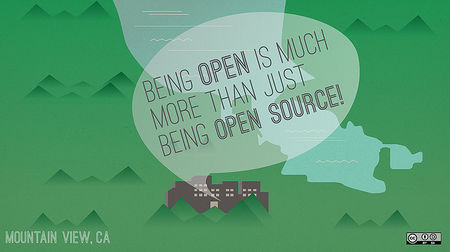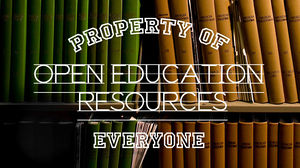Open Education Practices
| Learning and Teaching in Practice | |
|---|---|
| Module 8: Personalised learning and diagnostic assessments | |
| Collaboration in education | Introduction | Mechanisms for collaboration | Open Education Practices | Summary |
Open education practices (OEP) has become a term in its own right, and the many aspects associated with the phenomenon are described superbly in the Open Practices What article by Helen Beetham (2012).
Historically, open education was offered by only a few institutions (e.g., Open University, Open Polytechnic, and Athabasca university) and usually meant distance learning. Hence the term open distance learning. Such institutions removed barriers to participation in formal learning by eliminating entry requirements and pre-requisites, enabling anyone to study for a qualification. The distance component also meant that the learning environment was easier to access, as learners did not need to travel to a campus.
More recently, open education has come to mean free online learning and is associated with the use of open education resources (OER). A commonly accepted definition for OER by the William and Flora Hewlett Foundation (2012) provides a starting point:
- OER are teaching, learning, and research resources that reside in the public domain or have been released under an intellectual property license that permits their free use and re-purposing by others. Open educational resources include full courses, course materials, modules, textbooks, streaming videos, tests, software, and any other tools, materials, or techniques used to support access to knowledge.
- Sharing and collaboration
- Philosophically, open education practices require that individuals will openly share the resources that they create, making it possible for others to re-use them. Collaboration is key in the creation and sharing of OER. "The fundamental design of Open Education intends to produce a threefold educational experience that combines learning/research, communication and collaboration...." (Wikipedia, 2013). Debate about what constitutes open education resources and practices has been in process since the OER term was defined in 2002. This is discussed in the OER Literature review by Ruth Jelley (2013).
- Open licensing
- When considering using or creating open education resources, it is important to understand protocols such as using open licences (rather than copyright - all rights reserved) for materials so that they can be re-used. Material in the public domain can be freely used. Some rights reserved, open licensing is made possible by selecting Creative Commons licenses. A good place to start looking for a range of re-usable media is Search Creative Commons.
- Successful open education practices
- Essentially, teachers need to understand how to collaborate and share resources not only with students but also with colleagues, and how to become more involved in online social networks and communities. Collaboration and communication using a variety of media-sharing platforms facilitates this.
- Examples of media sharing platforms
- Wiki platforms for content generation (PBworks, Wikispaces, WikiEducator), file sharing using Google documents, e-Portfolios using Google Sites, image, video and information sharing sites such as Flickr, Picasa, FaceBook and Youtube.
|
Lots of organisations are now offering open courses which are available to anyone who has access to a computer or mobile device and the Internet. Here is a list of some of the more commonly known ones.
|
Must have resources
|

